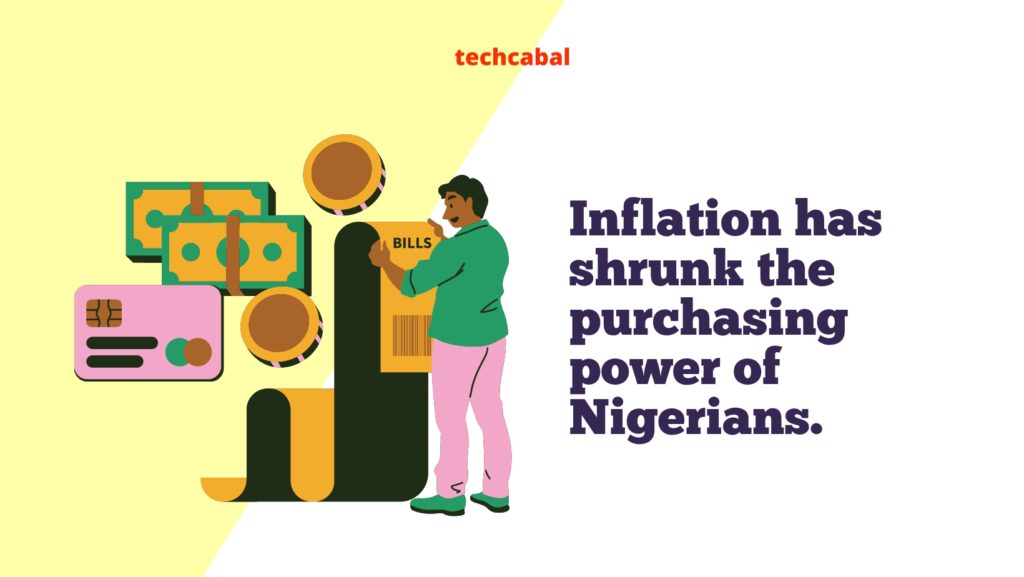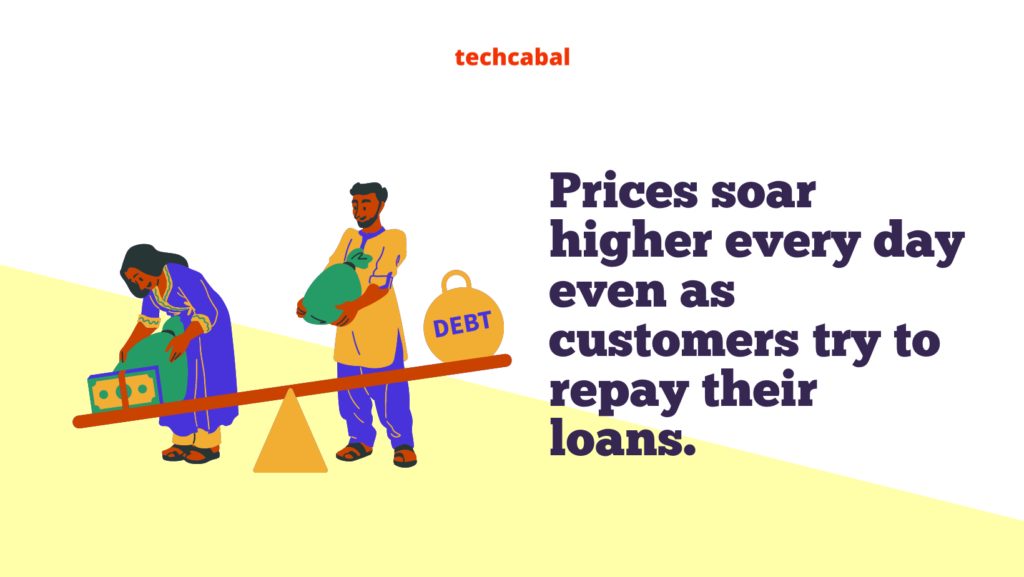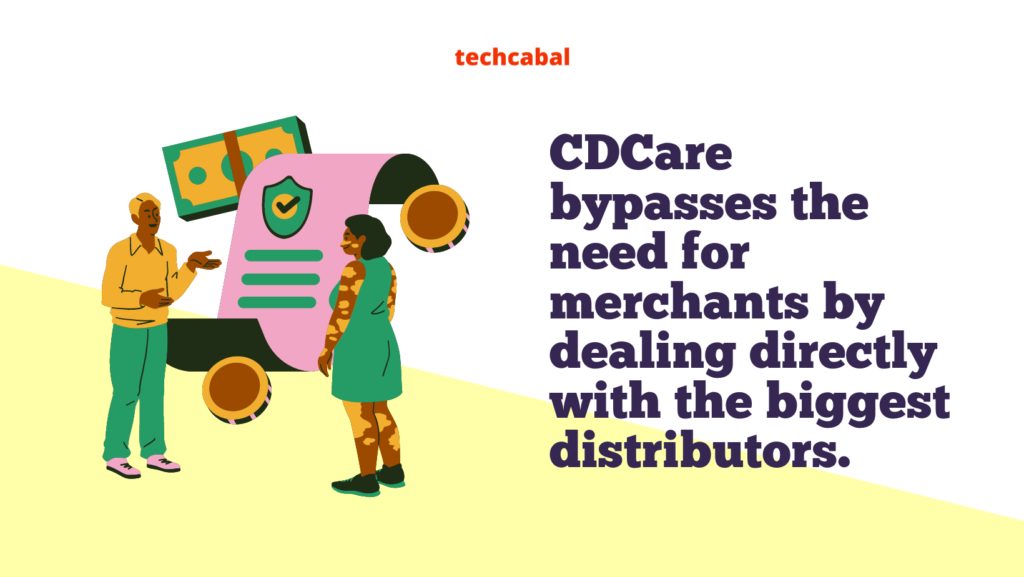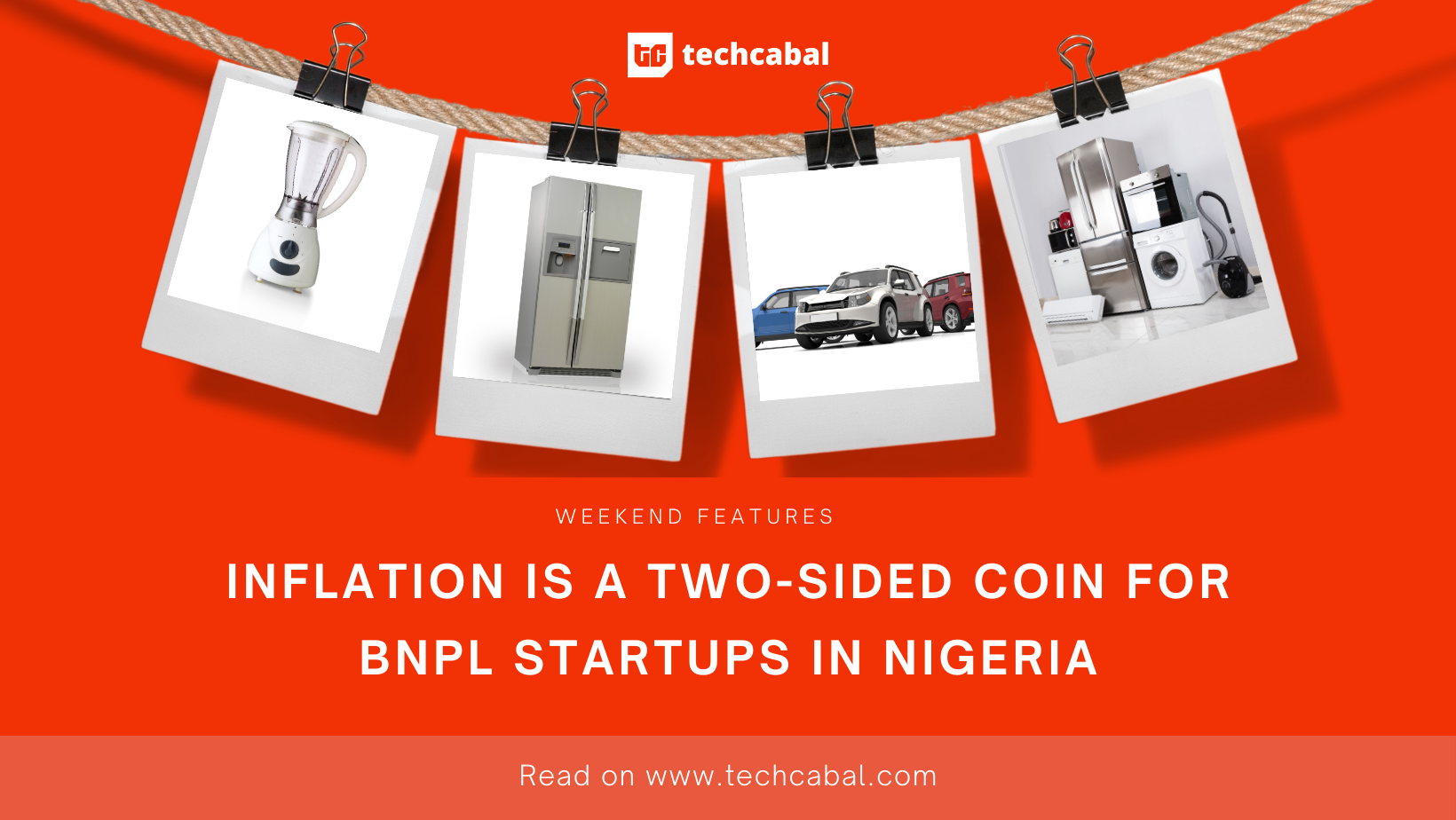Since its launch in 2020, CDCare, a Nigerian e-commerce startup, has sold more blenders than any other products. The startup, which offers Buy-Now-Pay-Later (BNPL) options, allows users to spread payments and has gained popularity in the Nigerian market, especially for young people who want to buy electronic gadgets, home appliances and furniture.
CDCare is one of the major BNPL providers in Nigeria, alongside CredPal, Zilla, and Carbon Zero. They operate in a market where retail credit is in its very early stages. In 2023, only about 6-10.5% of Nigerians formally accessed a loan, with the rest having to borrow from family and friends.
Nigeria’s headline inflation rose every month, hitting 28.90%, an 18-year high, in December 2023. This has raised prices of goods and services across the country, shrinking the purchasing power of millions of Nigerians, and forcing customers to explore installment payments.
According to Tobi Odukoya, CDCare’s CEO and co-founder, the effects of inflation on their business have been particularly interesting.
“We have seen a lot of new customers who now have to spread payment as they cannot afford one-time payment for their wants,” he shared with TechCabal. “There’s now a new set of Nigerians who now have less disposable income and can now only afford to pay in installments what they used to be able to pay for in full.”
At the same time, however, inflation has cancelled out a whole demographic of former middle-class Nigerians who now cannot afford to pay for any wants at all.
“What people use to buy gadgets and appliances is discretionary income which comes after you’ve paid for your basic needs,” he shared. “Lower class Nigerians now are financially strained such that they are focused on their basic needs, rather than thinking about instalment payments for bigger generators.”
This surprising trend highlights the evolving nature of lending financial products in a challenging economic climate.
This is the same for CredPal, another player in the Nigerian BNPL space which launched in 2018. In a response shared with TechCabal, Fehintolu OlaOgun, CredPal’s CEO, shared that the inflation has driven growth for the company.
“It has affected the purchasing power of people, but it has also been a driver for growth as people are more interested in spreading payments as opposed to paying in full,” he wrote.

He, however, shared that the startup is incredibly critical of this high demand and has employed even more stringent measures to confirm the eligibility of customers. Prior to this, KYC requirements for CredPal were work details like office address, salary range, salary date, and other personal information. Now, users are mandated to provide functional work IDs before accessing credit. Unlike CDCare, CredPal has a strict credit limit for users and only allows them to purchase items within a stipulated amount based on their credit history or ratings.
The chaotic credit market
Nigeria is not the greatest market for credit and BNPLs are not the only players suffering from this as neobanks and other lending platforms are staggering under the weight of non-performing loans. Carbon and FairMoney, both players in the Nigerian lending space have both seen their profits take a dip as a result of impaired loans. While a part of this can be attributed to the moral standing of individuals, a larger part is perhaps the economic situation in the country.
Prices go up nearly every day, and for the average Nigerian, this destabilizes their finances and leaves them with even less to repay loans.

*Eno, a 24-year-old graphic designer in Abuja, defaulted on the repayment for a laptop she purchased from CDCare in 2023. A six-month repayment plan turned into seven as the amount she allocated to her essentials became insufficient due to the increase in transport fares, forcing her to eat into the funds for repayment.
“I’m probably banned from the app now,” she shared with a chuckle. “But I really did everything in my power to repay, including trying to borrow from lending apps and asking for a salary advance.”
It took her three weeks past the due date to complete her payment, and in that period, she received a barrage of calls and messages from the platform.
“I reached out to them via every single platform I could think of. WhatsApp, texts, emails, calls, etc to request for an extension but nothing worked,” she shared.
CDCare lets users spread payments for as long as one year; delivering the items halfway through the payment cycle. For their vehicle instalment payments, users get up to three years to complete payments. This extended payment period is strategic according to Odukoya, who shared that the repayment rate on their platform is quite high – as high as 90%, he maintained.
Last week, TechCabal reported that Zilla, another BNPL startup, pulled the plug on its BNPL offering. This came after it faced extended low patronage and complaints from buyers who favoured other platforms like CredPal and CDCare for their longer repayment periods. They allowed a maximum of four months for users to complete payment on items.
Before BNPL, Odukoya affirms that they’re first an e-commerce company, and that shapes how they’ve structured their platform. Unlike players like CredPal and Zilla which provide a list of vendors in various categories on their app for users to make their pick, they (CDCare) bypass the need for merchants by dealing directly with the biggest distributors. This does two things: help them guarantee the quality of products and ensure lower prices – both of which have been instrumental in helping them stay ahead in the Nigerian BNPL superiority race.

Optimism has been unable to stop the naira’s fall
In January, the International Monetary Fund (IMF) predicted that the inflation rate is expected to drop to 23% this year and consequently 15.5% by 2025, due to the foreign exchange reforms introduced by the central bank. These reforms include monetary tightening which the CBN governor, Yemi Cardoso, disclosed in December 2023.
In spite of this, the naira has tumbled aggressively in 2024, depreciating 31% to reach N1,400 on January 30.
Zuleihat Yakwari, who runs a home appliances store in the country’s capital, shared with TechCabal that business is incredibly slow. Most of her customers now prefer to patronize declutter pages on social media where they buy used appliances from people relocating to other countries. The rest, like those who use BNPL platforms, prefer to pay in bits. Sometimes, she has to sell some of her products on declutter pages for reduced prices, because they just need to go.
“People are no longer paying ₦100,000 for a microwave. They’ll rather buy one another person has used on Instagram for ₦30,000.”
According to Zuleihat, the prices of appliances go up every time she goes to restock, and so the people who insist on brand new appliances, majority of whom are newlyweds or intending couples, have started paying months in advance: an initial deposit to “lock down the item,” and then the rest in bits.
“As much as the prices are high, people know they will go up even higher, and so a lot of them are now paying very early to avoid regret,” she shared.
The fluctuating price of products is also a major challenge for BNPL platforms. OlaOgun of CredPal is wary that this could make repayment even more difficult for their product, consequently making BNPL unattractive. Odukoya, on the other hand, is a bit more optimistic.
According to him, who shared that they’ve had countless situations where prices increased mid-payment in the past, the way they’ve navigated this has been through continuous and clear communication with customers. So far, the customers have been understanding.
Understanding, however, is not the currency that covers the price difference, and some users have had to cancel their buying plans on the app due to increased prices.
CDCare offers a car financing plan, which offers customers up to three years to pay for their vehicles. Unlike their other products, car financing is only available to people resident in Lagos.
Adedeji Olowe, a finance expert, is not convinced that this is a great market for large payments like cars, as other lenders are already shutting down.
“The current macroeconomic situation does not permit digital lenders to make such offerings,” he shared.

As Nigerian BNPL startups navigate the country’s inflation and economic uncertainties, the dynamics of consumer behaviour are shifting depending on their economic class. While they’re seeing an entire category of buyers being phased out as a result of reduced purchasing power, they’re also witnessing growth amidst the demand for instalment payment options. This growth path is one to be treated with both optimism and caution, as it ultimately depends on the broader economic narrative, which is currently shaky.























